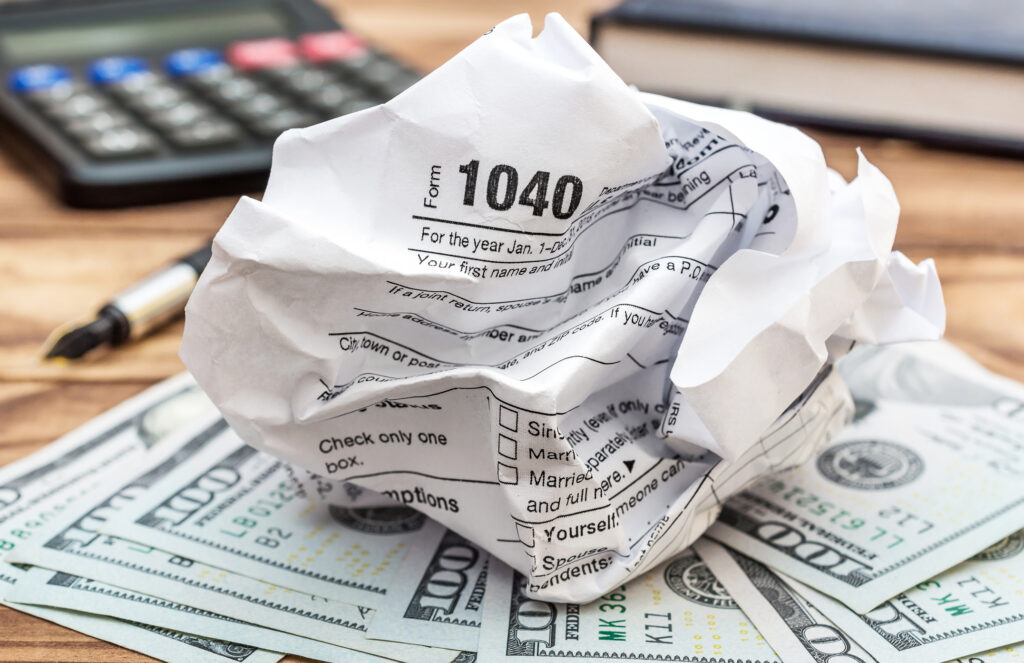Taxes are often a sore topic for individuals and businesses alike. Most taxpayers seek assistance from professional tax preparers or accountants to ensure accuracy and compliance with tax laws. However, errors in tax returns can lead to significant financial repercussions, raising the question: Can a taxpayer hold a preparer liable for accounting malpractice due to these errors?
The Florida Legal and Accounting Malpractice Attorneys at Parrish & Goodman, Attorneys at Law, tackle this question.
Understanding Accounting Malpractice
Accounting malpractice occurs when a professional fails to provide services at the expected standard of care, resulting in harm to a client. For a claim of malpractice to be established, there are several key elements that must be demonstrated:
- Duty of Care: The tax preparer was obligated to act with reasonable care when preparing the tax return.
- Breach of Duty: The preparer failed to meet the standard of care expected from professionals in their field, leading to an error or oversight in the tax return.
- Causation: There must be a direct link between the preparer’s negligence and the taxpayer’s financial harm.
- Damages: The taxpayer must show that they incurred financial losses as a result of the preparer’s error.
According to the Internal Revenue Service (IRS):
- Paid return preparers prepared 53 percent of individual income tax returns in 2021.
- Of those, approximately 58 percent were prepared by non-credentialed return preparers.
- Paid return preparers prepared about 79 percent of Earned Income Tax Credit returns, but over 92 percent of the total amount of audit adjustments occurred on returns prepared by non-credentialed return preparers.
- The U.S. Government Accountability Office (GAO) reports that tax returns prepared by preparers had a higher estimated percentage of errors—60 percent—than self-prepared returns—50 percent.
Common Errors Made by Tax Preparers
Tax preparation mistakes can occur for a variety of reasons, including lack of knowledge, oversight, or misinterpretation of tax laws. Common errors include:
- Incorrectly calculating deductions or credits
- Failing to report income
- Inaccurately applying tax laws
- Missing deadlines for filing returns
Depending on the severity of the errors, these mistakes can lead to penalties from the IRS, interest on unpaid taxes, or even an audit. Taxpayers may find themselves in a precarious situation, trying to navigate the consequences of their preparer’s blunders.
Establishing Liability
To determine whether you can hold a tax preparer liable for malpractice, you first need to establish that the preparer acted negligently. This involves proving that the preparer’s actions fell below the standard of care typical for a tax professional. In Florida, for example, the standard is that the accountant must possess the requisite knowledge and skill to perform the services competently.
Evidence of malpractice might include:
- Documentation of errors made on your tax return
- Comparison to industry standards or practices to show how the preparer’s actions diverged from expectations
- Testimony from experts in tax preparation or accounting
Potential Defenses by Tax Preparers
Tax preparers may have several defenses available to them when faced with allegations of malpractice:
- Reasonable Care: The preparer may argue that they exercised due diligence and that the outcome was unforeseeable despite their best efforts.
- Client Responsibility: The tax preparer might claim that the taxpayer failed to provide necessary information, leading to the errors, or that the taxpayer approved the return before submission.
- Adherence to Legal Standards: They can also defend themselves by showing that their actions were in line with generally accepted accounting principles (GAAP) or other relevant regulations.
Limitations and Considerations
Before pursuing legal action against a tax preparer, consider the following:
- Statute of Limitations: There are time limits on how long you have to file a claim for malpractice. In Florida, this period is two years from the date of the error.
- Cost vs. Benefit: Legal action can be costly, and the potential recovery may not outweigh the expenses incurred in pursuing a lawsuit.
- Communication with Your Preparer: Before taking drastic measures, it might be beneficial to discuss the errors with your preparer. They may be willing to resolve the issues without the need for litigation.
- Professional Liability Insurance: Many tax preparers carry malpractice insurance, which can cover settlements or judgments against them. If you can prove negligence, this insurance can facilitate the recovery of damages.
Complaints about a paid tax preparer can also be submitted to the IRS.
Florida Accounting Malpractice Attorneys
While it is possible to hold a tax preparer liable for accounting malpractice due to errors in tax returns, establishing liability requires a thorough understanding of the law and substantial evidence to support your claims.
If you believe you have a valid case, consulting with an attorney who specializes in accounting malpractice can provide valuable guidance and representation. Parrish & Goodman Attorneys at Law can help you hold negligent accountants accountable while attempting to recover your financial losses in many cases. Taking the right steps can help you seek justice and recover your financial losses resulting from your preparer’s errors.




